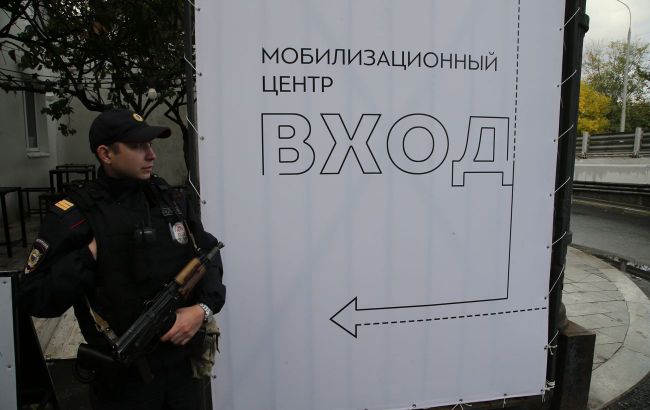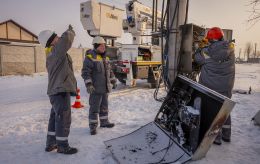Russia legalizes mobilization of Ukrainians in occupied territories - NRC
 Russian authorities in the temporarily occupied territories prepare to mobilize Ukrainians (Photo: Getty Images)
Russian authorities in the temporarily occupied territories prepare to mobilize Ukrainians (Photo: Getty Images)
Russian authorities are attempting to legalize the forced mobilization of residents in the temporarily occupied territories of Ukraine, according to the National Resistance Center.
Russian lawmakers have passed a law allowing military conscription throughout the entire year, from January 1 to December 31.
Formally, the law also applies to the occupied areas of Ukraine, despite previous statements claiming that residents would be exempt from military service.
According to sources of the National Resistance Center in the Zaporizhia region, Russian military commissariats have already received instructions from Moscow to prepare lists of men aged 18 to 50 who are deemed fit for service.
In Melitopol, door-to-door checks to verify men’s places of residence have resumed since mid‑October. The NRC reports that special attention is being paid to utility workers, security guards, and construction workers who can be quickly sent to the second line without training.
At the same time, occupation media speak of volunteer battalions. But, according to residents, recruits are accepted under an ultimatum: either sign a contract or lose your job.
“These actions grossly violate the Fourth Geneva Convention, which explicitly prohibits the forced conscription of the civilian population of an occupied territory into the army of the occupying power,” the NRC statement says.
Meanwhile, the center reports that representatives of the occupation administration fear protests and sabotage.
“Moscow is preparing to keep fighting — using the hands of Ukrainians from the occupied cities,” the center claims.
Tightening control over Ukrainians in the temporarily occupied territories
Earlier, RBC-Ukraine reported, citing the National Resistance Center, that the Russian authorities in Ukraine’s temporarily occupied territories have sharply increased checks. Now, so-called filtration measures are carried out not only at checkpoints but also at workplaces.
Utility services have been instructed to identify those who have not registered their status in Russia. People without a Russian passport face threats of deportation, property confiscation, or the blocking of payments.
Since the beginning of the year, a registry of controlled persons has also been operating in the temporarily occupied territories. Russians are entering into it, Ukrainians who have not obtained Russian passports.

